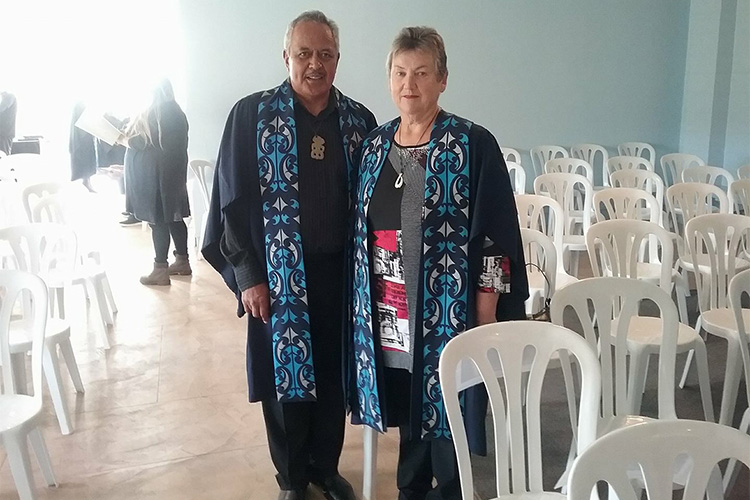Husband and wife duo, Piripi and Linda Taiapa are proof that it’s never too late to learn te reo Māori.
68 year old Linda and 70 year old Piripi, began their te reo Māori journey in 2017 with the hope of meeting new people after moving to Ōpōtiki.
“I wanted to get into as many local things as possible so we could meet new people because we had come down from the South Auckland area. We had always talked about learning te reo so I went down to the Wānanga and signed up,” says Linda.
Piripi has links to Ngāti Porou but says he grew up in a Pākehā world and Linda is of Irish and English decent, so learning te reo Māori was something very new to the both of them.
They both admit that learning has been a struggle at times but they were determined to stick at it and have since completed the level one, two, three and four te reo Māori programmes at Te Wānanga o Aotearoa’s (TWoA) Ōpōtiki campus.
“We have never done anything like this in our lives so at times it has been a bit over our heads but we persisted. We still can’t speak te reo the best but we understand a lot more than we first did,” says Linda.
Both Piripi and Linda agree that they still have a long way to go on their learning journey but it’s the little things and the small steps they have made that make them proud.
“It’s going down the road and saying mōrena instead of good morning or gidday and we are always getting more confident,” says Piripi who hopes to one day be able to go into his local shops and korero Māori.
The couple’s grandson has also started learning te reo at high school and they hope to one day be able to kōrero Māori with him as well as their other adult children and grandchildren.
But for now, Piripi and Linda will continue on their learning journey together at TWoA and hope to see others in their community start their own te reo Māori journey as well.
“We have become part of the whānau and that was really important to us. Now we can walk down the street and people will say hello to us. We were looking for a sense of belonging and that’s what we got,” says Linda.

